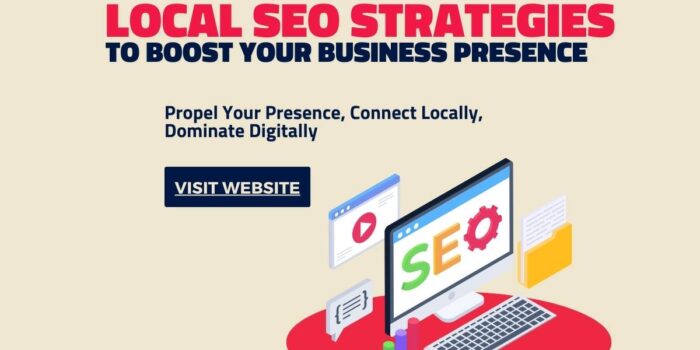In 2025-26, the SEO world continues to evolve rapidly, and SEO managers must stay ahead to remain competitive. Whether you’re a seasoned professional or stepping into the role for the first time, this guide provides Top 40 SEO Manager Interview Questions & Answers to help you shine in your next interview. From mastering technical SEO to demonstrating strategic expertise, this comprehensive guide has you covered.
Top 40 SEO Manager Interview Questions & Answers to Ace Your 2025-26 Career Goals
1. What is SEO, and why is it important?
Answer: SEO, or Search Engine Optimization, is the art and science of improving a website’s visibility on search engine results pages (SERPs) through non-paid (organic) means. It’s essential because it drives targeted traffic, enhances user experience, and builds credibility, which ultimately fuels revenue and growth for businesses.
2. How do search engines work, and what is their primary goal?
Answer: Search engines deploy crawlers to discover and index web content. They use complex algorithms to rank pages based on criteria such as relevance, content quality, and user experience. The ultimate goal of search engines is to deliver the most relevant and high-quality content to answer user queries.
3. Can you explain the difference between on-page and off-page SEO?
Answer:
- On-page SEO: Focuses on optimizing elements within the website, such as meta tags, titles, content, internal links, and URL structures.
- Off-page SEO: Involves activities outside the website, like building backlinks, engaging on social media, and managing online reputation.
4. What is the significance of keywords in SEO, and how do you conduct keyword research?
Answer: Keywords help search engines understand the context and intent behind a website’s content. I conduct keyword research using tools like Google Keyword Planner, SEMrush, or Ahrefs. The strategy involves identifying high-traffic, relevant keywords, leveraging long-tail keywords, and analyzing competitors’ keyword tactics to ensure content draws the right audience.
5. Explain the concept of a sitemap.
Answer: A sitemap is an XML file listing all the pages on a website, enabling search engines to crawl and index the site more efficiently. It plays a critical role in helping search engines locate important content and understand the site’s structure.
6. What is the significance of page speed in SEO, and how do you optimize it?
Answer: Page speed is critical for both user experience and search rankings. Slow-loading pages can lead to higher bounce rates and reduced engagement. To optimize page speed, I:
- Combine and minimize HTTP requests.
- Compress images using tools like TinyPNG.
- Implement browser caching and leverage CDNs (Content Delivery Networks).
7. How do you approach optimizing content for search engines?
Answer: Content optimization starts with understanding user intent and creating high-quality, engaging material. This involves crafting compelling titles, meta descriptions, and incorporating keywords naturally. Structured content with header tags (H1, H2, etc.) ensures better readability and search performance.
8. Explain the importance of backlinks in SEO.
Answer: Backlinks act as endorsements for your website, signaling to search engines that your content is credible. Quality backlinks from authoritative sites can significantly enhance rankings. I prioritize earning backlinks through guest blogging, influencer partnerships, and creating shareable, valuable content.
9. What is Google’s mobile-first indexing, and how does it impact SEO?
Answer: Mobile-first indexing means Google uses the mobile version of a website for ranking and indexing. Optimizing for this requires ensuring responsive design, fast mobile loading times, and consistent content across both desktop and mobile platforms.
10. How do you stay updated with the latest SEO trends and algorithm changes?
Answer: Staying informed is crucial. I regularly read trusted sources like Moz, Search Engine Journal, and Google’s Webmaster Blog. Additionally, I participate in online SEO communities, attend webinars, and join industry conferences like SMX or MozCon.
11. What is the role of social media in SEO, and how do you leverage it?
Answer: While social media doesn’t directly influence SEO rankings, it can drive traffic, build brand awareness, and attract backlinks. I use social platforms to promote content, engage with audiences, and collaborate with influencers to expand reach.
12. Explain the concept of canonicalization.
Answer: Canonicalization is the process of telling search engines which version of a URL to consider as the primary one when duplicate or similar content exists. By using canonical tags, you guide search engines to the preferred version, preventing duplicate content issues and consolidating ranking signals.
13. How do you handle a sudden drop in website traffic?
Answer: A sudden traffic drop can be alarming. I address it by conducting a detailed site audit using tools like Google Analytics and Screaming Frog. I check for indexing issues, penalties, or broken links and examine Google Search Console for potential manual actions or algorithmic updates.
14. What are the key elements of an SEO audit, and how do you conduct one?
Answer: A comprehensive SEO audit includes:
- Site structure and crawlability: Ensuring search engines can navigate the site easily.
- Content quality: Evaluating relevance, freshness, and keyword use.
- Backlink profile: Checking the quality and diversity of links.
- Technical SEO: Analyzing factors like page speed and mobile optimization.
Using tools like Screaming Frog, Ahrefs, and Google Search Console, I assess and address these aspects systematically.
15. How do you approach optimizing for local search?
Answer: Local SEO requires tailoring your approach for specific geographic areas. I focus on optimizing the Google My Business profile, securing consistent NAP (Name, Address, Phone) details across directories, encouraging customer reviews, and creating localized content to improve visibility in local search results.
16. What role does user experience play in SEO, and how do you enhance it?
Answer: User experience (UX) is pivotal for SEO. Google prioritizes sites that provide seamless navigation, fast load times, and engaging content. To enhance UX, I ensure the website is mobile-friendly, improve site speed, simplify navigation, and deliver content that aligns with user intent.
17. Can you explain the difference between white hat and black hat SEO?
Answer:
- White hat SEO: Ethical practices aligning with search engine guidelines, such as creating valuable content and earning backlinks naturally.
- Black hat SEO: Manipulative tactics like keyword stuffing or buying links, which can result in penalties. I strictly follow white hat techniques to maintain long-term success.
18. How do you measure the success of an SEO campaign?
Answer: Success is measured using key performance indicators (KPIs), such as:
- Growth in organic traffic.
- Improved keyword rankings.
- Conversion rates from organic traffic.
- Engagement metrics like bounce rate and time on site.
Tools like Google Analytics and SEMrush help track these metrics and provide actionable insights.
19. What is the importance of structured data (schema markup) in SEO?
Answer: Structured data helps search engines better understand and display your content in search results, often as rich snippets. This boosts visibility and click-through rates. Adding schema to pages is an effective way to make your content stand out.
20. How do you handle duplicate content issues, and why are they problematic?
Answer: Duplicate content can dilute ranking signals and confuse search engines. To address this, I use canonical tags to indicate the preferred version of content, implement 301 redirects, or set noindex tags where appropriate.
21. Explain the concept of E-A-T in SEO.
Answer: E-A-T (Expertise, Authoritativeness, and Trustworthiness) is a quality standard Google uses to evaluate content. Websites that demonstrate E-A-T, particularly in sensitive niches like health or finance, are more likely to rank well.
22. What are featured snippets, and how do you optimize for them?
Answer: Featured snippets are direct answers displayed at the top of Google search results. To optimize, I craft concise answers to common questions, use structured data, and organize content using bullet points or numbered lists.
23. How do you address issues related to crawl budget?
Answer: Crawl budget refers to the number of pages a search engine crawls on your site during a given period. To optimize it:
- Fix crawl errors and broken links.
- Block unnecessary pages via robots.txt.
- Prioritize important pages for crawling.
24. What is the impact of page titles and meta descriptions on SEO?
Answer: Page titles and meta descriptions are vital for improving click-through rates. A well-optimized title tag with relevant keywords enhances rankings, while an engaging meta description encourages users to click on your link.
25. How do you approach international SEO, and what challenges may arise?
Answer: International SEO focuses on optimizing websites for different languages and regions. Using hreflang tags, creating localized content, and addressing cultural differences are key steps. Challenges often include managing duplicate content and ensuring accurate hreflang implementation.
26. What is the role of video content in SEO, and how can it be optimized?
Answer: Video content boosts engagement and helps with rankings. To optimize, I:
- Use keywords in video titles and descriptions.
- Ensure fast loading times.
- Host videos on platforms like YouTube and embed them on my website.
27. How do you handle site migrations without negatively impacting SEO?
Answer: A smooth site migration requires:
- Setting up 301 redirects for changed URLs.
- Updating sitemaps and testing extensively.
- Notifying Google through Search Console.
28. Explain the importance of HTTPS in SEO.
Answer: HTTPS encrypts the data exchanged between users and your website, improving security and trust. It’s a ranking factor for Google, and switching to HTTPS is essential for both user experience and SEO performance.
29. What are the best practices for optimizing images for SEO?
Answer: Key practices include:
- Using descriptive, keyword-rich alt text.
- Compressing images to reduce loading times.
- Ensuring responsiveness across devices.
30. How do you handle SEO for e-commerce websites, and what unique challenges may arise?
Answer: E-commerce SEO involves optimizing product pages, improving site speed, using schema markup for product details, and managing duplicate content for product variations. Common challenges include inventory fluctuations and maintaining a large catalog.
31. What is a 404 error, and how can it impact SEO?
Answer: A 404 error occurs when a page isn’t found, leading to poor user experience and higher bounce rates. I address these by setting up 301 redirects or removing broken links.
32. How do you conduct a competitive analysis in SEO?
Answer: I analyze competitors by:
- Reviewing their keyword strategies.
- Examining their backlink profiles.
- Identifying content gaps and improvement opportunities.
33. What is the role of user intent in keyword optimization?
Answer: User intent refers to the purpose behind a search query. Keywords must align with intent—informational, navigational, or transactional—to attract relevant traffic. Tools like AnswerThePublic help uncover intent-driven queries.
34. How do you handle SEO for a content-heavy website?
Answer: For content-heavy sites, I prioritize intuitive navigation, clear content hierarchy, and strong internal linking. Each piece of content is optimized for unique metadata to avoid duplication.
35. Explain the impact of Core Web Vitals on SEO.
Answer: Core Web Vitals measure critical aspects of user experience, such as load speed, interactivity, and visual stability. Meeting these standards boosts rankings and user satisfaction.
36. How can you identify and address toxic backlinks?
Answer: Using tools like Ahrefs, I identify toxic backlinks and either disavow them through Google’s Disavow Tool or request removal from the linking site.
37. What is the role of local citations in local SEO?
Answer: Local citations, or mentions of a business’s NAP (Name, Address, Phone), boost local rankings. I ensure consistent NAP details across directories like Yelp and Yellow Pages.
38. How do you approach link-building in SEO?
Answer: I focus on building high-quality backlinks through guest blogging, influencer outreach, and content marketing. Broken link-building is another effective strategy.
39. What is the impact of user-generated content on SEO?
Answer: User-generated content (UGC), such as reviews or comments, enhances engagement and provides fresh content. I moderate UGC to maintain quality and ensure relevance.
40. How do you stay adaptable to algorithm changes?
Answer: By monitoring updates via Google’s Webmaster Blog and industry forums, I stay proactive. When an update occurs, I analyze performance metrics, identify trends, and adjust strategies accordingly.
Conclusion
Congratulations! You’ve completed the Top 40 SEO Manager Interview Questions & Answers guide. With these insights, you’re well-prepared to demonstrate expertise, creativity, and strategic thinking in your next interview. Best of luck on your journey to SEO success!




